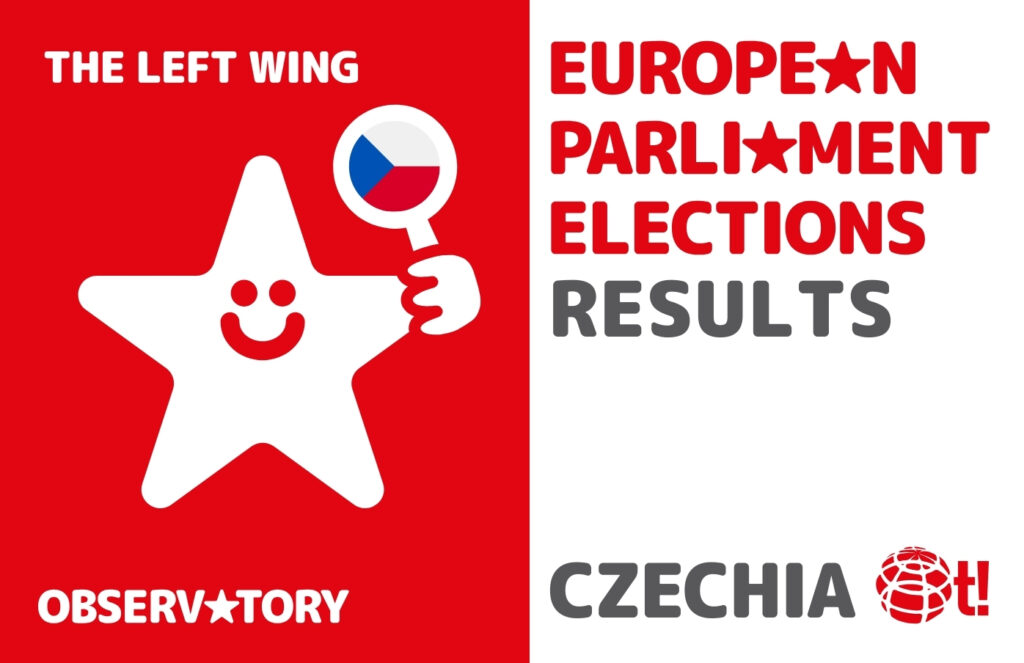EP elections in the Czech Republic saw significant gains for left-wing parties, particularly the CPBM and the Stačilo! coalition. These results indicate potential shifts and new alliances, with a focus on social issues, national interests, and a critical stance on current EU policies. Read on for details.
The Czech Republic elected a total of 21 MEPs from 30 political parties and coalitions, which is fewer than in previous elections, with over 650 candidates vying for these seats.

Source: Verian for the European Parliament (https://results.elections.europa.eu/en/national-results/czechia/2024-2029/)
Voter Turnout
The voter turnout was 36.5%, the highest since the Czech Republic joined the EU. There were notable differences between regions: the most vulnerable areas, both socially and economically, saw a 30% turnout, while Prague, the region with 207% of the average EU standard of living (compared to the Czech average of approximately 90%), had the highest turnout at 42.6%. The increase in turnout was most pronounced near the borders and in less developed regions, while it was less noticeable in urban centers.
From a political perspective, the elections did not bring any significant surprises, instead confirming the long-term trends of a stratified society with significant internal conflicts. The results highlighted the fragmentation of the Czech political spectrum and the low popularity of the ruling coalition. These elections are perceived as second-order, leading voters to experiment more with their choices. This experimental nature allows other political organizations that have not yet competed in parliamentary elections to gain visibility.
Election Results
- ANO 2011: A centrist, moderately populist movement led by a dominant leader, won 7 seats, an increase of 1 seat compared to 2019.
- SPOLU: The governing coalition consisting of right-wing ODS, liberals TOP 09, and Christian Democrats KDU-ČSL secured 6 seats, a loss of 2 seats.
- Přísaha + Motoristé: A new coalition of the center-right movement and a right-wing party, gained 2 seats.
- Stačilo!: A left-wing coalition with more patriotic features, including the CPBM, United Democrats, and the Czech National Social Party, won 2 seats (+1). The incumbent MEP Katerina Konečná secured 1 seat, while an independent candidate with a more liberal orientation secured the other.
- STAN+SLK: A coalition of STAN (a member of the governing coalition) and Personalities for Europe, with a liberal orientation, took 2 seats (-1).
- Czech Pirate Party: A member of the governing coalition with a liberal orientation, obtained 1 seat (-2).
- SPD + Trikolora: A coalition of the right-wing populist SPD Movement and Trikolora (formerly part of ODS) got 1 seat (-1).
Other left-wing entities like SOCDEM (1.86%), the Greens (1.55%), and the Levice party (0.07%) did not secure any seats.

Source: Verian for the European Parliament (https://results.elections.europa.eu/en/national-results/czechia/2024-2029/)
In general, these elections are considered:
- A defeat for the ruling coalition, though not a significant one.
- A strengthening of the position of the dominant ANO movement, which leads current polls for the parliamentary elections with over 30% support.
- A reinforcement of extreme positions within the Czech political spectrum, particularly through the far right.
- A boost for the newly emerging radical left coalition, significantly influenced by the CPBM, which seeks broader coalitions to criticize government policy, EU policies (including the Green New Deal), and NATO.
- A failure for the newly formed left-wing Levice party, which after four years, failed to achieve significant results, remaining below 0.1% of the vote.
With regional elections approaching in the autumn, the EP elections serve as a signal for preparation and the search for effective coalitions. For instance, the CPBM has declared it wants to use the positive experience of the EP elections to form alliances, while parties like SOCDEM will need to reevaluate their strategies.
Key Takeaways
The EP elections in the Czech Republic have bolstered the position of key left-wing political components, particularly the CPBM. There is also a growing trend of forming new blocs that transcend the traditional right-left political spectrum, focusing on issues like the Green New Deal, EU federalism, the war in Ukraine, and NATO policies. The success of the Stačilo! coalition may prompt the CPBM to transform into a less ideologically distinct entity, opening up to other partners to form effective left alliances, emphasising traditional left agendas like solidarity and social issues, as well as national interests and a critical stance towards current EU integration trends and environmental crisis solutions.





